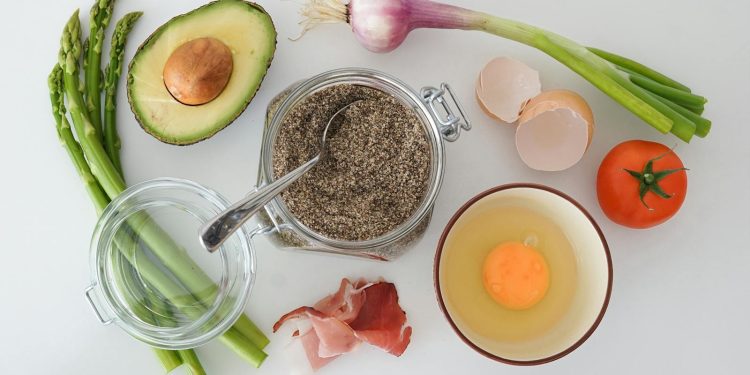Introducing your baby to new flavors and spices is an exciting milestone that helps lay the foundation for adventurous eating habits and a diverse palate. Babies are born with a natural curiosity for new experiences, including different tastes and textures. By gradually introducing spices and flavors into your baby’s diet, you can enrich their mealtime experience and help them develop a love for a wide range of foods. This essay will provide tips and ideas for safely and thoughtfully introducing spices and flavors to your baby’s diet, along with easy, baby-friendly recipes that incorporate mild spices and herbs.
The Benefits of Introducing Spices Early
Introducing spices to your baby’s diet has several benefits. Not only does it make food more flavorful and interesting, but it also helps your baby become accustomed to a broader range of tastes, which may help reduce picky eating habits in the future. Flavorful food can also stimulate your baby’s appetite and make mealtimes more enjoyable, especially as they transition from breast milk or formula to solids.
Spices like cinnamon, turmeric, and mild herbs such as basil and thyme also contain beneficial antioxidants and anti-inflammatory properties, which can contribute to your baby’s overall health. By offering these spices in a controlled and gentle manner, you can begin to build a foundation for a healthy, well-rounded diet.
When to Start Introducing Spices
Most babies are ready to start trying spices and flavors around six to eight months of age, once they have become accustomed to single-ingredient purées and basic foods. It is important to introduce spices gradually, starting with small amounts to see how your baby reacts. Make sure to introduce one new spice at a time, just as you would with new foods, to monitor for any potential allergic reactions or sensitivities.
Tips for Introducing Spices to Your Baby
- Start Small: When introducing spices, use very small amounts at first—a pinch is usually enough. As your baby becomes more comfortable with the flavors, you can gradually increase the amount.
- Stick to Mild Spices: Begin with mild, aromatic spices like cinnamon, nutmeg, turmeric, cumin, and basil. Avoid spicy or hot spices, such as chili powder or cayenne, as these can be too intense for your baby’s developing taste buds.
- Combine with Familiar Foods: Introduce spices by adding them to foods your baby is already familiar with. For example, you can add a pinch of cinnamon to apple purée or a sprinkle of cumin to mashed carrots.
- Watch for Reactions: As with any new food, watch for signs of allergic reactions or digestive discomfort. If your baby shows any signs of discomfort, such as a rash or upset stomach, discontinue the use of that spice and consult your pediatrician.
Baby-Friendly Recipes with Spices and Flavors
Here are some simple and nutritious recipes that incorporate mild spices and flavors, perfect for babies as they begin exploring new tastes.
1. Cinnamon Apple Purée
Adding a pinch of cinnamon to apple purée can make it more aromatic and flavorful, which may encourage your baby to eat more.
- Ingredients: 1 apple (peeled, cored, and chopped), a pinch of cinnamon.
- Instructions: Steam the apple pieces until tender (about 8-10 minutes). Blend the apple until smooth, then stir in a pinch of cinnamon. Let the purée cool before serving.
2. Carrot and Ginger Mash
Ginger adds a gentle warmth to this mash, making it a comforting dish for your little one.
- Ingredients: 2 medium carrots (peeled and chopped), a small piece of fresh ginger (peeled).
- Instructions: Steam the carrots and ginger until the carrots are soft (about 15 minutes). Remove the ginger and blend the carrots until smooth. If your baby enjoys the taste, you can gradually add more ginger for a slightly stronger flavor.
3. Turmeric Lentil Purée
Turmeric is known for its anti-inflammatory properties, and its earthy flavor pairs well with lentils in this nutritious purée.
- Ingredients: 1/4 cup red lentils, 1/4 teaspoon turmeric, 1 cup water.
- Instructions: Rinse the lentils thoroughly, then combine them with water and turmeric in a pot. Bring to a boil, then reduce heat and simmer until the lentils are soft (about 15 minutes). Blend until smooth, adding water as needed to achieve the desired consistency.
4. Basil and Sweet Potato Mash
Basil adds a fresh flavor to the natural sweetness of sweet potatoes, making this mash a hit with babies.
- Ingredients: 1 small sweet potato (peeled and chopped), a few fresh basil leaves.
- Instructions: Steam the sweet potato until tender (about 15 minutes). Blend the sweet potato with the basil leaves until smooth. Basil provides a subtle flavor that enhances the sweetness of the potato.
5. Coconut and Cardamom Rice Pudding
This creamy rice pudding has a hint of cardamom and coconut, making it a delicious and aromatic treat for your baby.
- Ingredients: 1/4 cup rice, 1/2 cup coconut milk, a pinch of ground cardamom, 1/4 cup water.
- Instructions: Combine the rice, coconut milk, cardamom, and water in a small pot. Cook over low heat, stirring occasionally, until the rice is soft and creamy (about 20 minutes). Let cool before serving.
Spices to Avoid in Baby Food
While spices can be a wonderful addition to your baby’s diet, there are some spices and flavors that should be avoided for young children:
- Salt: Babies’ kidneys are not mature enough to handle excess salt, so avoid adding any salt to their food.
- Sugar: Added sugar is not necessary for babies and can lead to an increased risk of tooth decay and other health issues.
- Hot Spices: Spicy ingredients like chili, cayenne, and pepper can be too intense for babies and may cause digestive discomfort.
Making Mealtime Enjoyable and Flavorful
Introducing spices and flavors to your baby’s diet is an opportunity to make mealtime more enjoyable and exciting. Here are some additional tips to create positive mealtime experiences:
- Be Patient: Babies may need multiple exposures to a new flavor before they accept it. Keep offering a variety of flavors without pressure, and allow your baby to explore at their own pace.
- Use Herbs for Flavor: Fresh herbs like basil, dill, and parsley can add a burst of flavor without overwhelming your baby’s taste buds. Herbs are a great way to introduce new flavors while keeping meals mild.
- Set an Example: Babies learn by watching their parents. Enjoy flavorful foods yourself, and your baby will be more likely to follow suit. Sharing meals together can encourage your baby to try new tastes.
The Joy of Exploring New Flavors
Introducing spices and flavors to your baby’s diet is a joyful experience that opens up a world of culinary exploration. By offering a wide variety of mild spices and herbs, you are setting the stage for a lifelong appreciation of flavorful, wholesome foods. This early exposure helps develop a diverse palate and encourages adventurous eating habits that can last a lifetime.
Every baby is unique, and their preferences may change as they grow. Be patient, stay flexible, and enjoy the journey of discovering new flavors together. With these tips and recipes, you can make mealtime an exciting adventure that nourishes both the body and the spirit, helping your little one grow into a confident, curious eater.













